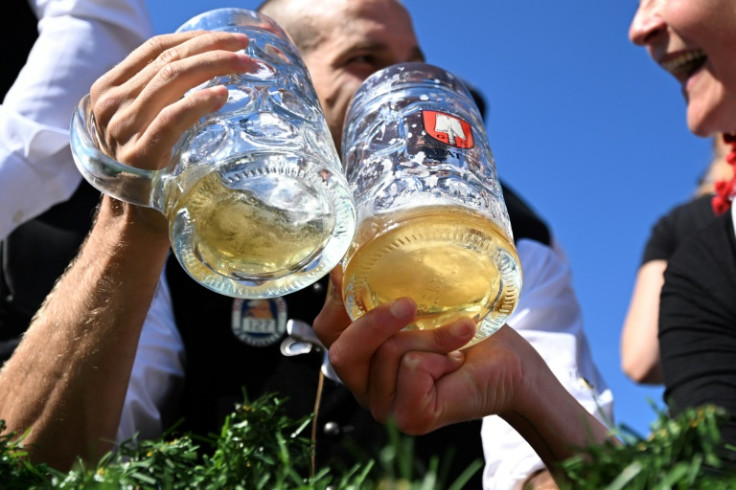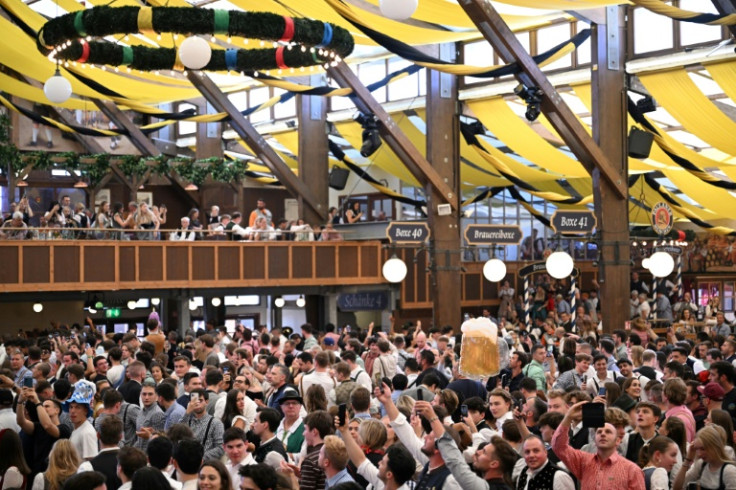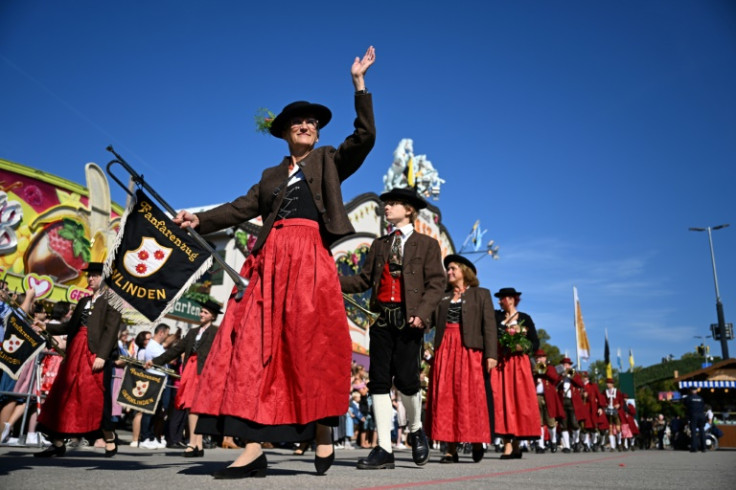
Munich's Oktoberfest, the world's biggest beer festival, opened Saturday under heightened security following a string of attacks in Germany attributed to jihadists.
"We will make the Oktoberfest as safe as possible," Munich mayor Dieter Reiter pledged ahead of the 189th edition of the event, which runs until October 6.
Billed as the world's biggest folk culture festival, the Oktoberfest last year drew more than seven million visitors who consumed a total of 6.5 million litres of beer.
The tighter police security this year comes after a spate of extremist attacks, including a deadly knife rampage in the city of Solingen last month.
Police arrested a Syrian man who had allegedly claimed allegiance to the Islamic State group ahead of the attack that killed three people and wounded eight more.
And earlier this month, Munich police shot dead a man after he opened fire on them and at the city's Israeli consulate in what was being treated as a suspected terrorist attack.
Munich police director Christian Huber reassured guests making their way to the Bavarian state capital that the Oktoberfest was the "safest festival in Germany, if not worldwide".
The general threat level was heightened but there were no indications that the Munich festival was being targeted, Huber said Wednesday.
As well as 600 police officers, the city will deploy another 1,500 security guards to guide visitors swiftly through entry controls.
The authorities will install metal detectors around the festival for the first time, as well as monitoring the event on security cameras.
Police will be checking the use of cannabis on the festival premises, despite its legalisation nationwide in April.
Bavaria's authorities have sought to restrict consumption of the drug as much as possible, banning cannabis at public festivals and in beer gardens.
Anyone caught smoking a joint instead of drinking a stein risks a fine of up to 1,500 euros ($1,675).
The Oktoberfest is more than two centuries old though it has been cancelled at times of crisis, such as cholera outbreaks, Napoleon's invasion of Bavaria, both world wars and the Covid pandemic.
The event was originally held in October as the name suggests, to celebrate a royal wedding, but was brought forward by one month to take advantage of the late summer weather.
Many revellers from Germany and around the world sport traditional Bavarian leather shorts and dirndl dresses for the extravaganza, which features oompah music and Schuhplattler dancers.
Years of inflation have not spared the Oktoberfest. There has been grumbling as the price of a large glass mug of beer has soared above 15 euros (above $16) this year.










